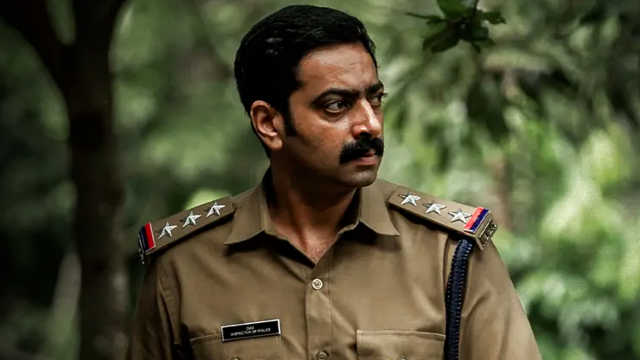
Suyog Zore
Mumbai, 19 Sep 2021 10:30 IST
Director Manoj Kana holds nothing back while showing how these Adivasis are struggling to survive in a world that seems to have outgrown its need for them.

In Tovino Thomas's recently released polarizing action thriller Kala (2021), one poor daily-wager tells others that many years ago, his ancestors used to own all this land where they are now forced to work for meagre daily wages. It was just a passing dialogue, but I thought how awesome it would be if we were to get to see a film from his point of view. I didn't have to wait too long.
There are films, and then there are films like Kenjira; unapologetic, gut-wrenching and visceral, so much that you want to just pause it in the middle and watch an episode of your favourite sitcom, and yet it's so gripping, the filmmaking is of such high class, and the acting is so real, that you just can't turn it off.
Kenjiira is about an Adivasi community called Paniya and their struggle to survive in a world that seems to have outgrown its need for them. The community exists somewhere deep in the jungles of Kerala. They sometimes work as bonded labourers of rich contractors to earn a living. Knowing well that they are illiterate and can't count, the cunning contractors never pay them their full wages, meagre though they be. It's a vicious cycle that these Adivasis can't get out of. To make matters worse, the government claims that the land they have been inhabiting for centuries doesn't belong to them and wants to displace them.
Someone who has had a full meal and has never had to worry about where their next meal would come from will notice the beautiful scenery, the lush green forests, but these Adivasis have more pressing matters to worry about, such as finding their next meal. So director Manoj Kana and director of photography Pratap Nair do not try to romanticize the serene surroundings. Instead, the camera remains static as it captures their struggle to survive, their exploitation at the hands of the mainstream society and the system.
For some reason, the director and his cinematographer have made the conscious choice of observing events from a distance. Very rarely does the camera get close to the people. It's as if we are not part of their world and just silently observing their world getting destroyed mercilessly. Even when we see them go about their daily activities in their small shacks, the camera remains in one corner as a silent observer. Probably the director wanted to tell us that no matter how much we try, we will never understand their plight, or that we, too, are part of the problem, I have no clue. But whatever his reason, it works brilliantly for the film.

It is, by any measure, a difficult film for viewers accustomed to conventional film stories and techniques. Writer-director Kana pulls no punches while showing the oppression of the tribal people. It's visceral, sometimes too disturbing, but what really shakes you the most is the matter-of-fact manner in which he show us all this oppression. You see the police officers who did not even spare old women and men in their lathi-charge laughing and enjoying their lunch with colleagues in the very next scene. Honestly, if I had watched this scene just two or three years ago, the naive me would have plainly refused to believe that this could happen, but I know now that this, unfortunately, is not uncommon.
Young Vinusha Ravi is excellent in the lead role and she flawlessly exudes the raw, rebellious attitude of a girl who is not ready to back down even in adverse situations. Her performance deserves a lot more accolades than she has got. All the supporting cast, mostly comprising non-professional artistes, also delivers tour-de-force performances.
Kana's Kenjira shakes you from within and makes you wonder about the many struggles people of marginalized communities go through merely to survive. It is a story of the lived experience of millions of Adivasis all over India, their forced displacement in the name of progress, and their exploitation by so-called literate, well-mannered, law-abiding citizens of our country.
Kenjira is now available on Neestream.
Corrections, 19 September 2021: In an earlier version of this review the film's title was misspelt in the headline as Kanjira while the name of the community shown was misspelt as Puniya. The film is Kenjira and the community is Paniya.
Related topics
Nee StreamYou might also like

Review Malayalam
Malayankunju review: Fahadh Faasil impresses in this survival drama
The Malayalam film features the actor as an abrasive man who aims to redeem himself after fighting a...

Review Malayalam
Paka (River Of Blood) review: Riveting saga of the cyclical nature of violence
Helmed by first-time director Nithin Lukose, this multi-layered film packs a solid punch with...

Review Malayalam
Antakshari review: A meandering suspense thriller with occasional moments of brilliance
Despite the excellent cinematography, production design and background score, the film's...

